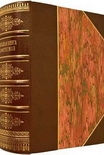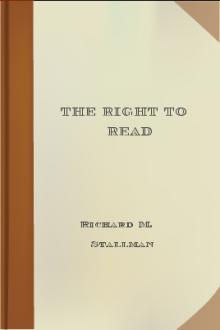Helgoland by Rovelli, Erica (ebook reader below 3000 .txt) 📗

Book online «Helgoland by Rovelli, Erica (ebook reader below 3000 .txt) 📗». Author Rovelli, Erica
We must expect to have to modify our provincial metaphysical perspectives just as soon as we learn something new. We must take seriously the new things we learn about the world, even if they clash with our preconceptions about how reality is constituted.
This seems to me an attitude that renounces the arrogance of possessing knowledge, while keeping faith with reason and our capacity to learn. Science is not a Depository of Truth, it is based on the awareness that there are no Depositories of Truth. The best way to learn is to interact with the world while seeking to understand it, readjusting our mental schemes to what we encounter and find. This respect for science as the source of our knowledge nurtures the naturalism of philosophers such as Willard Quine, for whom our knowledge itself is one of many natural processes and can be studied as such.
Many “interpretations” of quantum mechanics, like those referred to in Chapter II, seem to me to be efforts to squeeze the discoveries of quantum physics into the canons of metaphysical prejudice. Are we convinced that the world is deterministic, that the future and the past are univocally determined by the world’s present? Then let’s add quantities that determine the past and the future, even if they are unobservable. Does it disturb us to see a component of a quantum superposition disappear? Then let’s introduce a parallel universe where this component can go and hide. And so on.
I believe that we need to adapt our philosophy to our science, and not our science to our philosophy.
Niels Bohr was the spiritual father of the young Turks who built quantum theory. He pushed Heisenberg to preoccupy himself with the problem and accompanied him on his delvings into the mysteries of atoms. He mediated the argument between Heisenberg and Schrödinger, his two overly brilliant bickering children. It was he who formulated the way of thinking about the theory that has ended up in physics books all over the world. He was the scientist who perhaps strained more than any other to understand what it all meant. His discussion with Einstein on the plausibility of the theory lasted for years, forcing both these giants to clarify their positions, and to compromise.
Einstein had always recognized that quantum mechanics was a significant step forward in our comprehension of the world: it was he who proposed Heisenberg, Born and Jordan for the Nobel Prize. But he was never convinced by the form that the theory had taken. He accused it, at different times, of being inconsistent, implausible and incomplete.
Bohr defended the theory from Einstein’s criticisms, sometimes soundly, sometimes even winning discussions with arguments that were wrong.100 Bohr’s thought is not limpid; in fact, it is often somewhat obscure. But his intuitions are extremely acute and helped to build a good part of our current understanding of the theory. His key intuition is summarized in this observation:
Whereas in classical physics the interactions between an object and the measuring apparatus can be overlooked—or if necessary can be taken into account and compensated for—in quantum physics this interaction is an inseparable part of the phenomenon. For this reason, the unambiguous description of a quantum phenomenon is required in principle to include a description of all the relevant aspects of the experimental arrangement.101
These words capture the relational aspect of quantum mechanics, but in the circumscribed context of a phenomenon observed in a laboratory with instruments of measurement. For this reason, they lend themselves to a misunderstanding: the idea that we are speaking only of a situation in which there is a particular observer, who uses instruments of measurement. To think that a human being, their mind, their tools or the numbers they use plays any special role in the grammar of nature is nonsense.
What we need to add to Bohr’s paragraph is the awareness, which has grown in the course of a century of successes for the theory, of the fact that all nature is quantum, and that there is nothing special about a physics laboratory containing measuring apparatus. There are not quantum phenomena only in laboratories and non-quantum phenomena elsewhere: all phenomena are quantum phenomena. Extended to any and every natural phenomenon, Bohr’s intuition becomes:
Whereas previously we thought that the properties of every object could be determined even if we overlooked the interactions occurring between this object and others, quantum physics demonstrates that the interaction is an inseparable part of phenomena. The unambiguous description of any phenomenon requires the inclusion of all the objects involved in the interaction in which the phenomenon manifests itself.
Now, this is radical, but it is clear. Phenomena are actions by one part of the natural world upon another part of the natural world. Confusing this discovery with something that has to do with our minds is the mistake Lenin made: in the argument with Mach, Lenin is the dualist—the one, in other words, who is unable to conceive of phenomena if not relative to a transcendent subject.
The mind does not enter into the equation. Special “observers” have no real role to play in the theory. The central point is simpler: the properties of an object become manifest when this object interacts with others. We cannot separate the properties from these other objects. We cannot attribute them just to a single object. All of the (variable) properties of an object, in the final analysis, are such and exist only with respect to other





Comments (0)